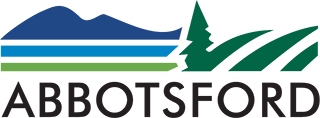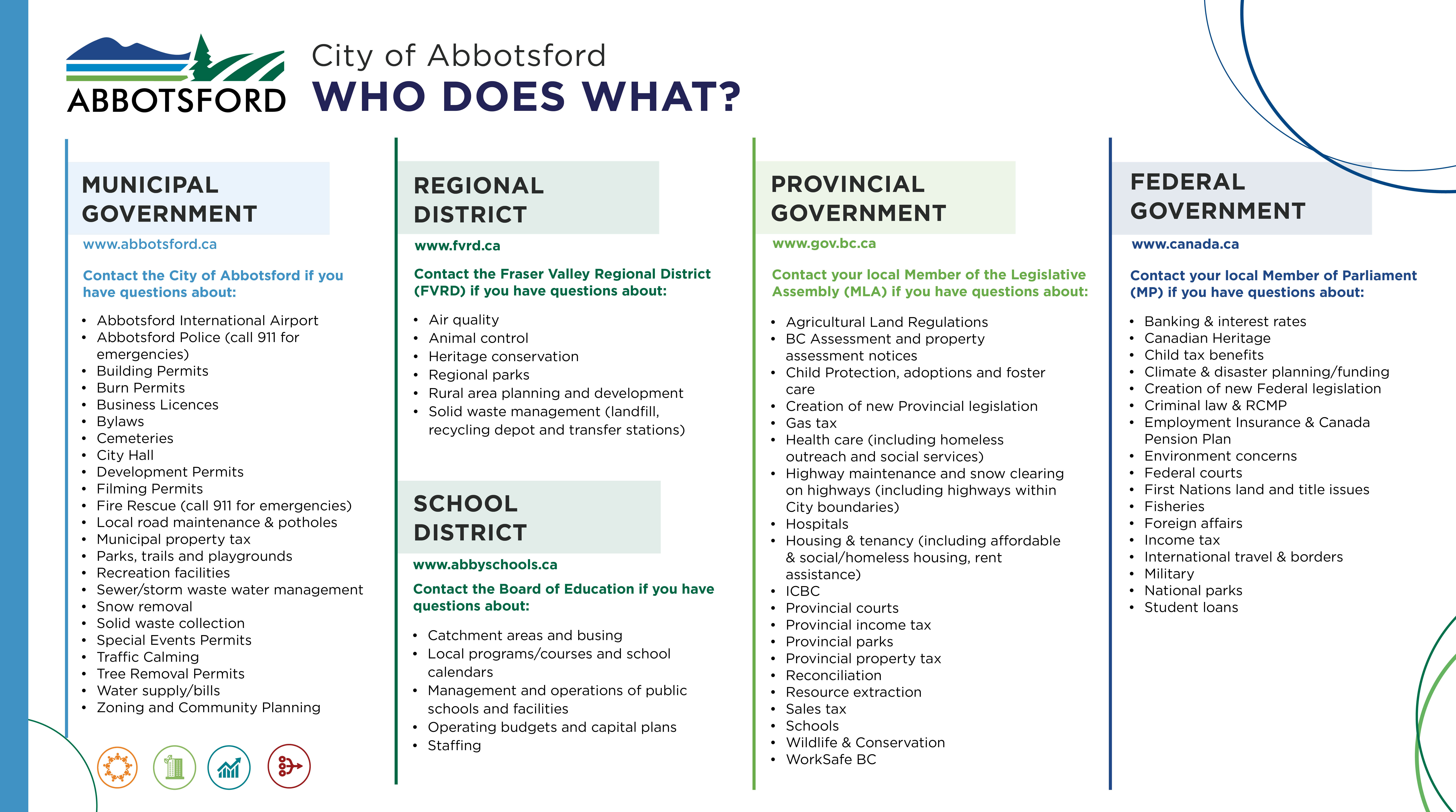
With three levels of government in Canada – local, provincial and federal – all at work in our daily lives, it can be confusing to figure out which one is responsible for what and who you need to contact if you have questions. This is especially true when you have an important issue or concern to bring forward and aren’t sure if it’s your Member of Parliament (MP), Member of the Legislative Assembly (MLA) or your local Mayor and City Council to reach out to.
As your City Council, it’s our duty to address the local government issues that matter most to you within our jurisdiction. It’s important to all of us as elected Councillors and Mayor that we hear from you when you think there’s an opportunity for us to improve the way local services are delivered for our community, and we are grateful to have so many engaged residents in Abbotsford who provide us with ongoing feedback. Last year nearly 1,000 residents reached out to us by email, and even more questions came in through City staff and social media channels. While we are able to speak to many of the issues that people shared, sometimes the questions or concerns we received were related to matters outside of municipal government jurisdiction.
Local governments, like the City of Abbotsford, are responsible for things like community safety, public utilities and public works (local roads, water and sewer services), zoning and community planning, parks and recreation, and solid waste services (a.k.a. garbage pickup and recycling).
The provincial Government of BC funds and is responsible for many important issues and big-ticket services that impact our society, like health care, education, highways and transportation, housing, homelessness, social services and a whole host of other areas. In next month’s provincial election, we will vote for our local MLAs who help make and support decisions on these critical areas.
The federal Government of Canada deals with issues that affect all Canadians on a national and international level. This includes national defence, reconciliation and Indigenous affairs, international trade agreements and foreign affairs, immigration, criminal law, controlling the national currency, and other monetary policies, including federal taxation.
Regional districts are an additional layer of regional government that support broader regional services that extend beyond individual municipalities and include responsibilities like managing regional parks and infrastructure, as well as air quality monitoring and animal control.
School Districts are another type of local government, which shares a co-governance with the provincial government. School District Boards of Education are responsible for governing their districts based on the educational aspirations of their local communities, according to the curriculum and policy direction established by the Government of BC. The Board of Education is responsible for the operation of all the public schools in their district and for making available an educational program to all school-aged children who enroll. Elections for Board of Education trustees are held at the same time as municipal elections.
Knowing which level of government is responsible for what can help you navigate where to direct your concerns and understand what’s at stake during elections. Each level of government plays a unique role in our lives, and understanding which areas are handled at each level helps us all to be informed and engaged citizens.
To help you the next time you head to the ballot box, and for your general knowledge, here is a breakdown of responsibilities of each level of government:
Abbotsford City Council

